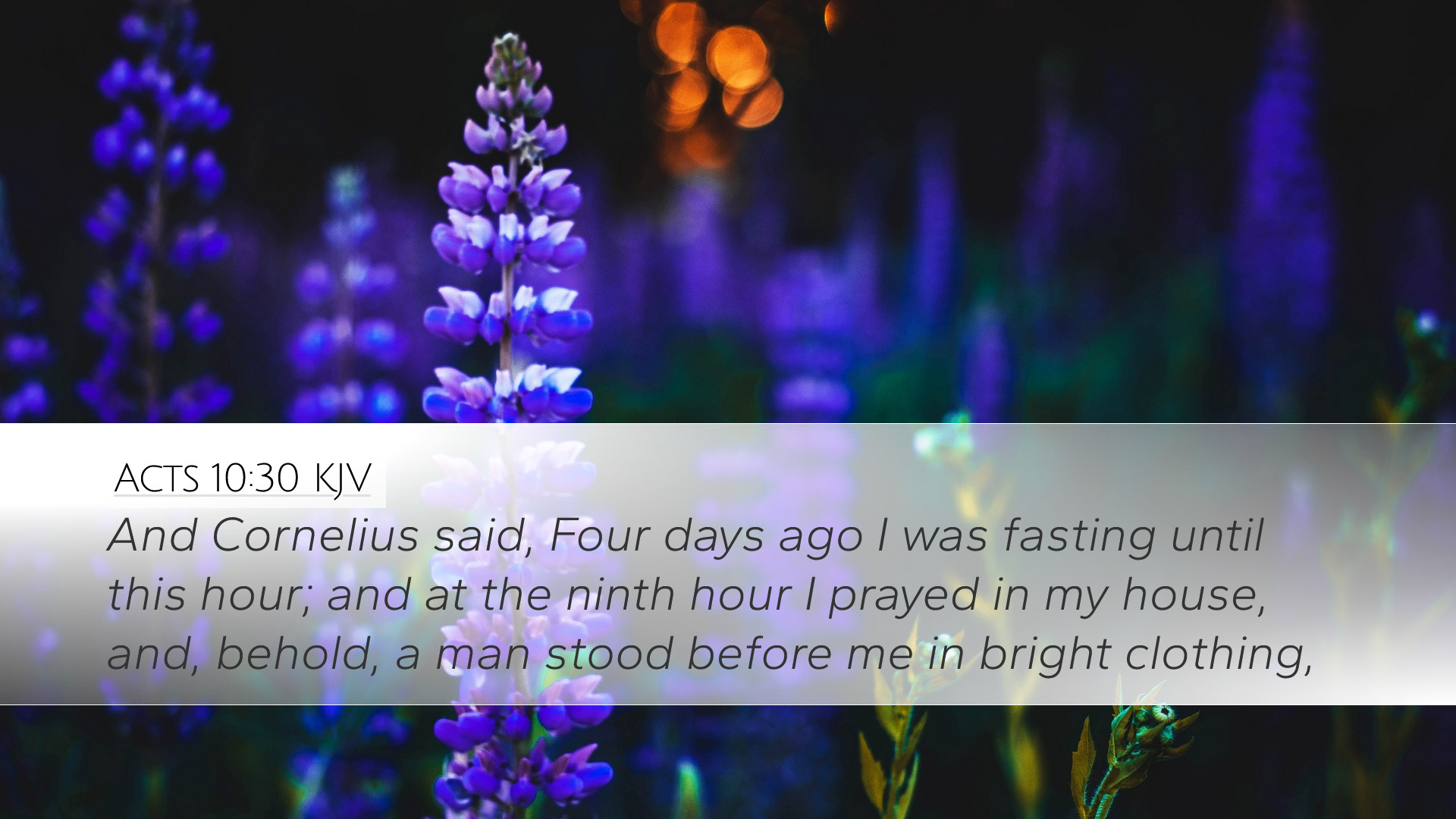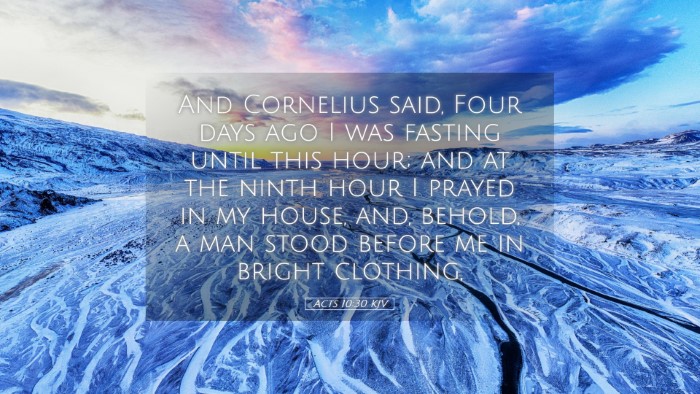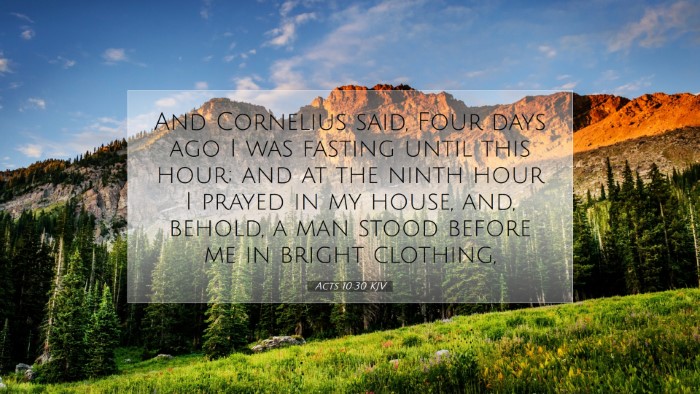Acts 10:30 Commentary Summary
Text of Acts 10:30 (ESV): “And Cornelius said, ‘Four days ago, about this hour, I was praying in my house at the ninth hour, and behold, a man stood before me in bright clothing.’”
Context of the Passage
The account in Acts 10 narrates the pivotal moment in the early Church when Gentiles are officially welcomed into the faith. The protagonist, Cornelius, is a Roman centurion described as a "devout man." This passage showcases the intersection of Jewish believers and Gentile seekers through divine revelation and human obedience.
Cornelius's Prayer
According to Matthew Henry, Cornelius’s prayer and piety demonstrate God’s responsiveness to those who seek Him earnestly. Henry notes that God rewards the ‘searchers’ of truth and righteousness with revelations that are transformative.
Albert Barnes emphasizes that the ninth hour, or 3 PM, was a time of significant prayer for the Jews, which indicates that Cornelius was in tune with Jewish traditions and devout in his piety, even as a Gentile.
Adam Clarke elaborates that such prayer practices signal Cornelius's genuine belief in God, showcasing that God's grace extends beyond traditional boundaries of ethnicity and religion.
The Vision of the Angel
Henry points out the remarkable detail of the angel’s appearance, described as “standing before” Cornelius in bright clothing. This supernatural encounter reflects God’s active involvement in guiding His servants. The brightness of the angel symbolizes the glory of divine presence, signifying the loftiness of the message delivered to Cornelius.
Barnes suggests that this angelic visitation serves to affirm that God has a plan for not only the Jews but also for the Gentiles, heralding the breaking down of barriers that had previously kept the two groups separate.
Clarke adds that the specifics of the time and setting underline a certain urgent divine necessity in Cornelius's call, indicating that preparation is underway for a new phase in God’s redemptive plan.
Theological Implications
The passage carries significant weight for understanding God’s overarching redemptive narrative. Henry articulates that the event represents God's impartiality—He “is no respecter of persons” (Acts 10:34). This moment is a forerunner to the Great Commission, where the Gospel is meant for all humanity.
Barnes indicates that this extension of salvation to the Gentiles depicts cosmic grace breaking the bounds of the Jewish covenantal law, exemplifying a new era of grace and receptivity towards all believers, regardless of cultural background.
Clarke further emphasizes that this shift towards inclusivity in worship and community setting is a cornerstone for Christian doctrine, highlighting the call for the church to embrace diversity and unity in Christ.
Practical Applications for Believers
This section can serve as an exhortation for pastors and leaders:
- Devotion in Prayer: Cornelius's prayer life exemplifies the essentiality of constant seeking after God. Believers should actively cultivate a life of prayer that invites divine revelation and guidance.
- Openness to God's Leading: Just as Cornelius responded to the angel's message, believers are to remain sensitive to the Holy Spirit’s leading in their lives, being ready to partake in God’s mission.
- Church Inclusivity: Pastors are encouraged to draw lessons from Cornelius’ conversion by actively welcoming diversity in the body of Christ, fostering a sense of belonging for all who come to faith.
Conclusion
The account of Cornelius in Acts 10:30 is not merely a historical event but a theological bedrock for understanding how God relates to humanity across cultural divides. The insights from Henry, Barnes, and Clarke enrich our comprehension of divine grace. Thus, every believer is called to reflect this grace and inclusivity in their ministry and interactions, faithfully following the call to spread the Gospel of Jesus Christ with courage and love.


